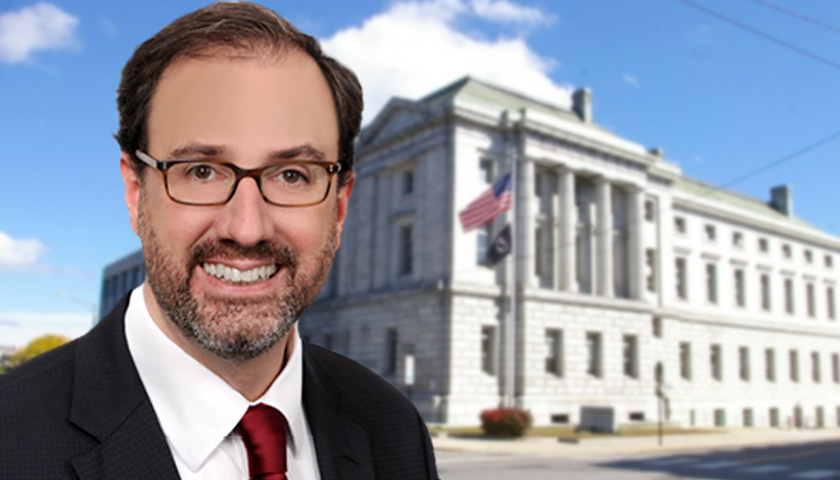The Buckeye Institute filed its third lawsuit and corresponding preliminary injunction in Maine calling for an immediate end to laws that force public-sector employees who have refused to join a union to accept forced union representation.
The think tank said it had previously filed lawsuits in federal district courts in Minnesota and Ohio following the Supreme Court’s Janus v. AFSCME decision.
The three lawsuits challenge the constitutionality of compelled exclusive representation, in which a government agency appoints a representative to speak on behalf of employees. The most recent case was filed in the United States District Court for the District of Maine on Aug. 10 (with a preliminary injunction motion filed on Aug. 16) on behalf of Jonathan Reisman, an associate professor of economics at the University of Maine at Machias who served as the Associated Faculties of the Universities of Maine’s grievance officer.
“As his local union’s grievance officer, Mr. Reisman understood and greatly valued the role of his local union. But he could accept neither being forced to support a national and state union that advocated for a partisan agenda with which he disagreed nor having a union advocate for that agenda in his name, as his appointed representative,” said Robert Alt, president and chief executive officer of The Buckeye Institute and an attorney on the case.
June’s Supreme Court decision in Janus v. American Federation of State, County, and Municipal Employees hit public-sector unions like a bombshell, economists David Kreutzer and Rachel Greszler said.
“The question explored in the Janus case was whether or not forcing non-members to pay union dues violates their First Amendment rights. That issue was addressed narrowly as a matter of free speech, but more broadly it had much to do with wrongful coercion.
“Both members and non-members of public-sector unions can opt out of paying the portion of dues that explicitly goes to the union’s political activities. But, until recently, non-members could still be forced by law to pay what was called a ‘fair share’ fee, because even non-members could receive the benefits of union representation (since unions have a monopoly on worker-employer negotiations). …
“The Janus decision delivered a blow to this model. The court ruled that any negotiation with a government entity involves the union advancing a public policy position, and that therefore, any forced union dues from non-members violated their First Amendment rights.
Kreutzer is the senior research fellow in labor markets and trade at The Heritage Foundation’s Center for Data Analysis. Read his research. Greszler is a senior policy analyst in economics and entitlements at The Heritage Foundation’s Center for Data Analysis. Read her research.
The justices also ruled that workers must affirmatively opt into the union before fees can be taken out of their paychecks.
JC Bowman, executive director of the non-partisan Professional Educators of Tennessee association, said, “It will effectively break the cycle where government unions can collect compulsory fees from government workers and then use it to help elect pro-union politicians to achieve and maintain political power — who then empower and enrich the government employee unions.”
The Buckeye Institute recently won a victory on Professor Reisman’s behalf when his union complied with the Janus v. AFSCME decision and granted Reisman’s demand to immediately cancel his union membership, and—accordingly—ceased withholding union dues without requiring him to wait until his designated opt-out window opened, which would have been unlawful under Janus v. AFSCME.




